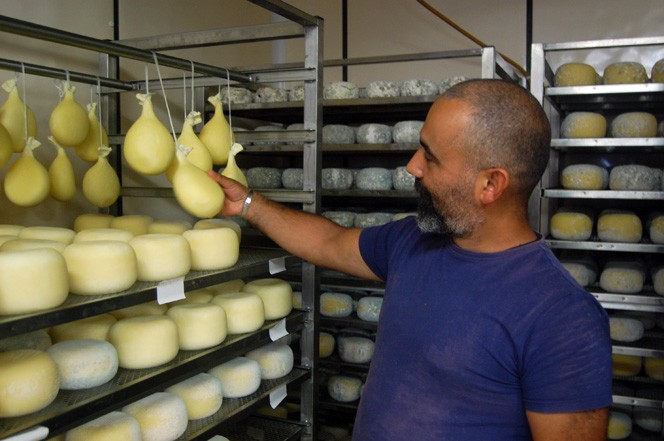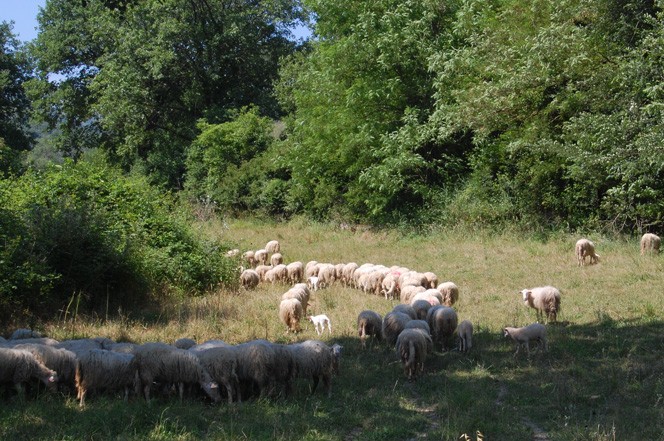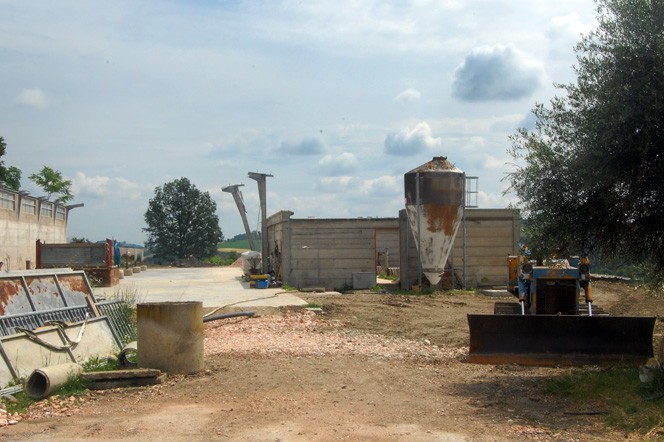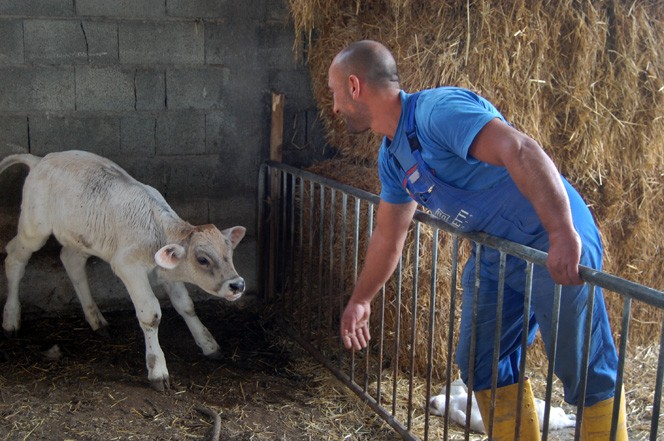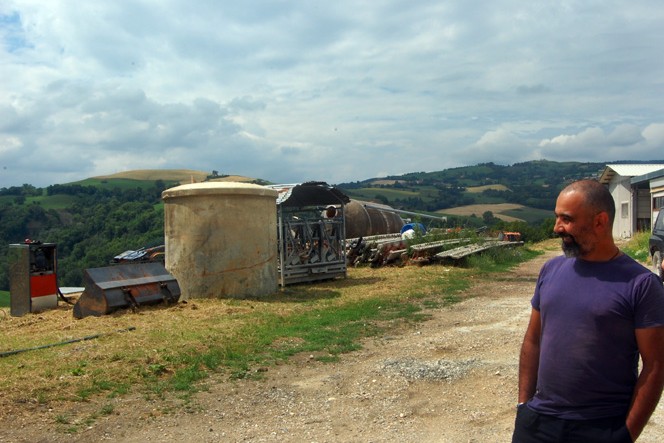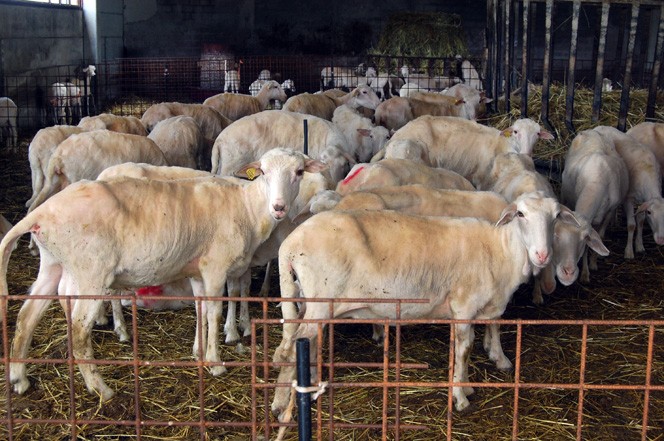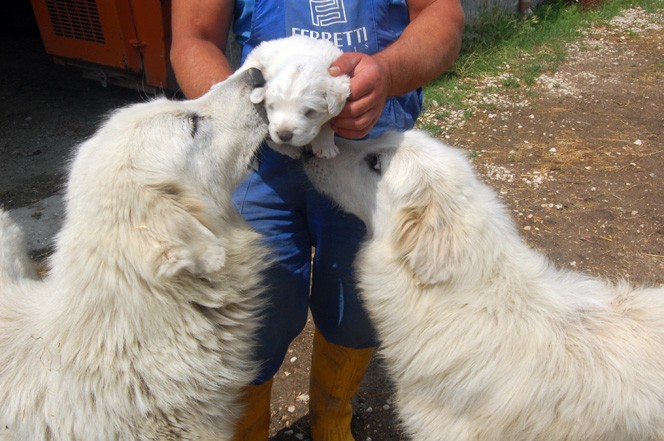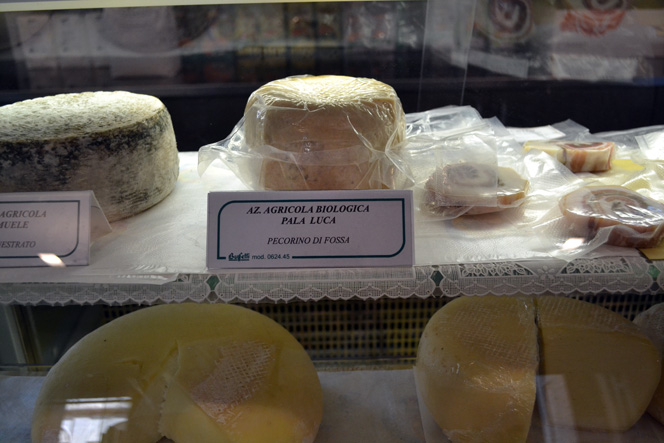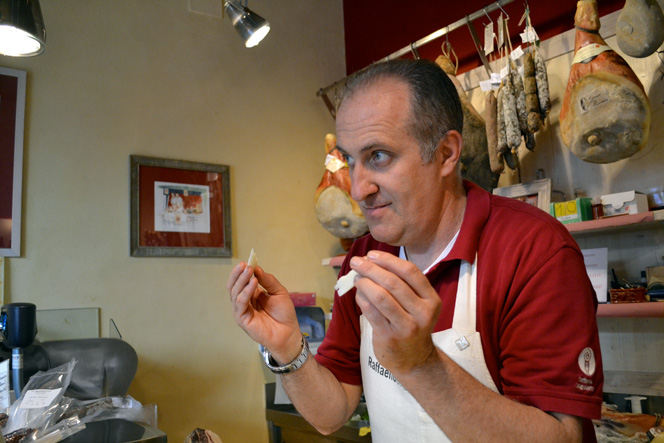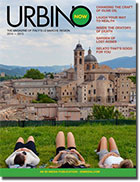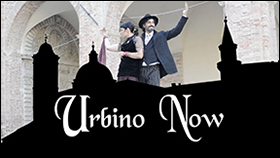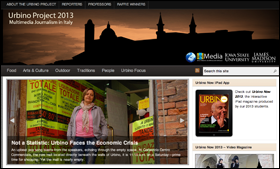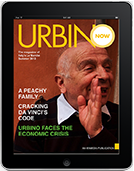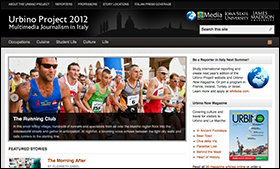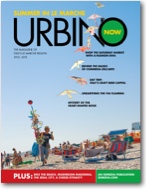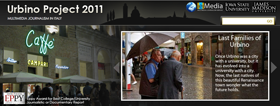Weathering the Storm
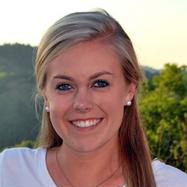
Despite the punishing winter of 2012, cheese maker Luca Pala pushes on to produce his trademark pecorino
All Luca Pala could see was white snow swirling in the wind and sleet falling from a gray and gloomy sky. He touched his windowsill and knew immediately that the temperature outside was below freezing. His stomach churned as he watched the snowfall accumulate on his farm with every passing minute.
Icy pellets slammed against the tin roof of the nearby barn as agitated sheep and squealing pigs lay on the hay-covered ground. Suddenly the roof caved in, triggering an uproar that could be heard from miles away.
Pala rounded up a herd of shivering, frost-bitten cows with raw hooves. Barely able to see in the whiteout, he led them for an hour, single-file down the road through deep snow to the shelter of a neighbor’s stable. Before the snow and ice were through, more roofs on Pala’s farm collapsed, some of his livestock perished, water pipes burst, and he lost electricity.
“Logical reasoning would have made me entirely shut down my farm,” says Pala, looking back at the severe storm that struck much of Italy and parts of Europe in early 2012. But despite all the damage, which put production on pause for two months and has kept him operating at a slower pace ever since, Pala remains a well-respected and popular maker of organic cheese in the Le Marche region.
Sitting on more than 270 acres of picturesque green pastures, hills, and valleys in Tavoleto, Pala’s farm focuses on all aspects of organic farming. It has done so ever since his parents Sebastian Alterpiece and Sebastiana Sistu, moved here from Sardinia to start a business selling cheeses and meats. Luca and his two brothers, Marco and Giuseppe, grew up working the farm. In 2003, Luca decided to to continue his family’s legacy when his parents retired. He took over the farm, guiding it in what he considered to be the right direction by maintaining his parents’ organic philosophy.
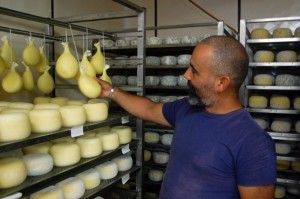
Luca Pala holds his cheese that is held in the cheese storage room at 30 degrees Fahrenheit. The cheese matures in this room for 20 days before its available for consumption.
Azienda Agricola Paletta, the official name of Pala’s farm, specializes in organic pecorino cheese made from sheep’s milk. Paletta also makes other varieties of pecorino as well as seasoned cheese and ricotta. His cheese is sold in locations throughout the region, including in San Marino, Rimini, Pesaro, and Urbino.
Every day before the sun rises over the nearby Tavoleto mountains, the alarm clock blares in Pala’s ear. He jolts out of bed, eager to start his workday, a chaotic frenzy of caring for his 250 sheep and 20 cows as well as managing the business side of his farm. What keeps him going is his dedication to the belief that natural methods are good for his animals, his farm, and his customers. Following regulations set forth by the Association for Organic Agriculture and the European Union, Pala’s farm uses its own naturally grown resources to make all its organic products.
“Buying organic food is a guarantee for one’s own health, and it helps nature,” says Pala.
Pala’s prized pecorino starts with raw milk from sheep raised in excellent living conditions and fed strictly organic hay. The milk is heated to 37 degrees Celsius, rests at this temperature for 10 to 15 minutes, and is then transferred to a large silver machine where it conglomerates. After steel wire blades cut the thickened milk into pieces, the cheese is molded into a wheel-like shape for two hours. The cheese is placed in a cold room—the temperature is a mere 20 degrees—where salt is applied after 24 hours. Finally, it remains in the cold room to mature for 20 days.
Pala unbolts a steel gray door leading to his cold room. In the dim light, several metal carts hold hundreds of pale white-and-yellow wheels of pecorino. The cheese looks thick and creamy. In a few weeks, he explains, it will be ready for delivery.
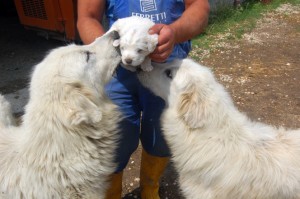
A mother and father lick their 2-week old puppy that will one day become a sheepherder like his parents. This breed is called Maremma Sheepdog.
One destination for Pala’s products is Degusteria Raffello, a specialty food shop that sits near the base of one of Urbino’s steepest climbs, at the corner Via Raffaello and Via Bramante. The store’s doors are often wide open, inviting customers to check out their assortments of pasta, wine, olive oil, and especially cheese.
Store owner Alberto Crinella slices a sample of Pala’s organic pecorino cheese into pieces on his dark brown cutting board with a sharp knife. He instructs the customers to break their pieces into fragments with their fingers in order to release and smell the rich aroma. Then a taste: a rich, milky flavor that lingers in the mouth for minutes.
“Luca Pala was one of the first producers that we contacted when we opened our shop seven years ago,” says Crinella, who describes Pala as a dedicated cheese maker who is serious about quality. “Since then, we have never stopped selling his products.”
Pala’s products are also in demand at Urbino’s Galleria AE, a shop that Pala established with a few of his colleagues. Workers there say they often run out of his popular organic pecorino.
On a recent June afternoon, Luca Pala gazes out over his farm and talks about his plans to continue recovering from the snowstorm of 2012. He hopes soon to increase his cheese production beyond the still-reduced frequency of two times per week. He would like to pay off his loans from the bank. He is looking into establishing a purchasing group, a network of loyal customers who would set up long-term agreements to buy his products.
“This project would allow people, maybe even our own customers, to invest in our farm,” Pala says.
He says he continues to face many challenges, including restrictive rules imposed by Italy and the European Union, the unpredictability of Nature, and a farmer’s built-in risks from being “right under the sky.”
But on this warm day under clear, precipitation-free skies, Luca Pala puts on a smiling face and says he will continue to work at the thing he loves.
This article also appears in Urbino Now magazine’s Mangia Bene section. You can read all the magazine articles in print by ordering a copy from MagCloud.



